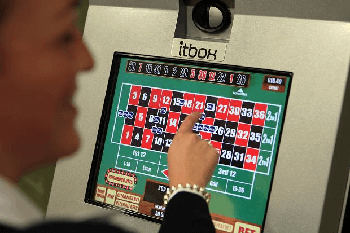Fixed odds betting machines are called by many names. Some of the names are quite flattering as many are thrilled at the easy convenience and rules of play. And then there are those who choose to levy some extremely unflattering, decidedly less-than-positive names at the machines. They have been called the “crack cocaine” of gaming due to the “addictive” nature of play. Most certainly a lot of people are playing fixed odds betting machines. Reports indicate gamblers are spending in the range of £1 billion per week. Doing the math, that means over £50 billion per year is invested on these games.
Actually, reports indicate about £50 billion was spent in 18 months. That figure is still an astronomical one.
Such a high volume of activity is hard to ignore. A lot of gamblers are wagering a lot of money. Compare the revenues invested on these gaming machines per week and year to the weekly and annual figures of other industries. Doing so makes it pretty clear consistent, compulsive wagering plays at least a partial role in the monetary figures.
The way the machines are designed, players are able to spend about £100 per 20 seconds on the games. With such a fast turnaround, no one should even be remotely surprised at the huge sums added up over the course of a single year. Many do not follow the gaming industry or its financials closely. As a result, the figures do end up being a shock once someone actually takes the time out to examine them.
Gamblers likely do not worry about such things. The government, however, does. A crackdown was intended to help address the overspending on the parts of gamblers, and also to address the potential for abuse. The crackdown did not work. Behavior can be extremely difficult to regulate.
The Department of Culture, Media and Sport is the entity tasked with addressing concerns related to gambling on fixed odds machines. The department did put forth new rules. Established in the spring, the ruled noted anyone who was interested in betting stakes in the £50 range was mandated to set up an account with a bookmaker.
No real success was achieved with the institution of the new rules. A mild decrease occurred. A really, really mild decrease – about 0.7% – took place. The results were negligible.
The government agencies must be more than peeved to discover that wagers below that threshold have gone up. They went up pretty dramatically, too. Bets between £40 and £50 have increased by over 300%, a fairly astounding sum when you think about it.
Voices are now being raised to cut down the maximum bet to £2. The chances of that occurring are rare. Even if the cuts were made, people would likely just make more bets, more often. Again, regulating behavior related to gambling is extremely difficult.
Even with the regulatory pressure and bad press, the popularity of these gaming terminals is likely to increase.

